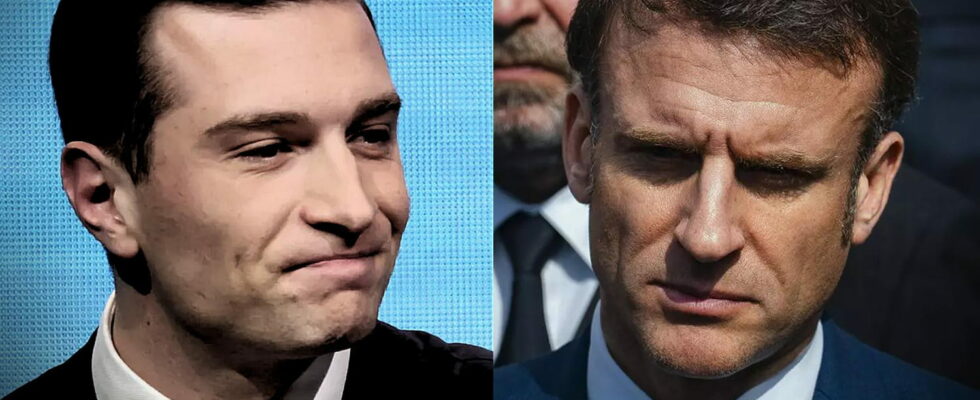The 2024 European elections begin this Sunday morning across France, with potentially explosive results this evening…
Find your municipality to follow the results of the European elections:
The essential
- The 2024 European elections call some 49.5 million French people to the polls this Sunday, to renew the European Parliament.
- Polling stations open at 8 a.m. and close either at 6 p.m. or 8 p.m., depending on the size of the municipalities and towns. The results of these 2024 Europeans will be known at 8 p.m.
- The polls, which in no way predict the actual results this evening, had until Friday suggested a large victory for the RN and a heavy defeat for the presidential majority. Within the macronie, it is a day of anxiety: a major electoral setback in the 2024 European elections could handicap the capacity of the executive to govern and establish its legitimacy until 2027. Emmanuel Macron will he be forced to make changes within the ministerial team to create a new dynamic?
Live
06:18 – European women still shunned by the French?
At noon on Saturday, participation was 4.80% in Guadeloupe. Less good than in 2019 when the rate reached 5.56%. 5 years ago, only 14.37% of registered voters on the island went to the polls.
Although much higher in mainland France, the participation rate in European elections remains low. In 2019, less than half of French people went to the polls. This year, the trend does not seem to be reversing this year. A similar participation rate is expected since less than a week before the vote only 46 to 51% of voters said they intended to vote according to the various polls.
06:09 – Let’s go for a day of voting in mainland France!
After the overseas territories on Saturday, it is the turn of the Metropolis to vote, this Sunday, for the European elections.
Polling stations will open from 8 a.m. throughout France. However, closing times will vary from one department to another. If in the majority of the country they will close at 6 p.m., in large cities, such as Paris, Lyon, Marseille, Strasbourg, Toulouse, Montpellier, Bordeaux, Nantes, Grenoble, Metz, Nice, Cannes, the polling stations will close their doors. doors at 8 p.m.
To vote in the European elections, you must go to your polling station with an identity document. The list of polling stations in your municipality is available on Linternaute.com, with addresses and opening hours. Once in the voting booth, you will have to choose a list from the 38 candidates for these European elections. A record.
French MEPs are elected in a multi-member proportional ballot with closed lists. Concretely, each party presents a unique list of 81 names and the French vote for the list of the party they wish to see sit in the European Parliament. The 81 seats reserved for French parliamentarians are then distributed proportionally to the number of votes collected by each list. However, a threshold of 5% is set, below which no seats are allocated. Hence the interest for the parties to come out on top.
Who are the candidates for the European elections?
During the previous election, around thirty lists were registered. In 2024, there are eight major lists corresponding to the main national political forces: the communists, the ecologists, the rebels, the socialists, the presidential majority, the republicans then the extreme right with on the one hand the National Rally and the another Reconquest. But several other lists are in the race, some representing well-known parties and candidates in each election such as Lutte Ouvrière or the Animalist Party.
What are the European elections for?
The European Parliament is re-elected in its entirety every five years in the 27 countries of the European Union. But the 2024 elections being the first since Brexit and the official departure of the United Kingdom, the number of elected deputies will change: there will be 720 to sit in the hemicycle compared to 705 since 2020. Each EU country must elect a certain number of deputies in proportion to its population density: the more populous a country is, the more elected representatives it has in Parliament. France, for its part, must choose 81 elected officials in 2024 (compared to 79 currently).
Once elected, MEPs form the European Parliament, which has certain powers, notably legislative capacities. The Parliament, with the Council of the European Union, is required to vote on the proposals for acts formulated by the European Commission on various areas such as the economy, foreign trade, freedom, security and justice, energy, transport, the environment and the common agricultural policy (CAP). Texts to which member countries must then submit. But on a certain number of areas, the European Parliament only has a consultative voice.
The European Parliament also has budgetary powers and decides, again with the Council of the EU, on financial guidelines and priorities. It also votes on the annual budget of the Commission. Finally, the hemicycle has powers of control in particular over the Commission since it elects its president – currently Ursula Von der Leyen – on a proposal from the Council of the EU and can table a motion of censure against the representative of the Commission.
